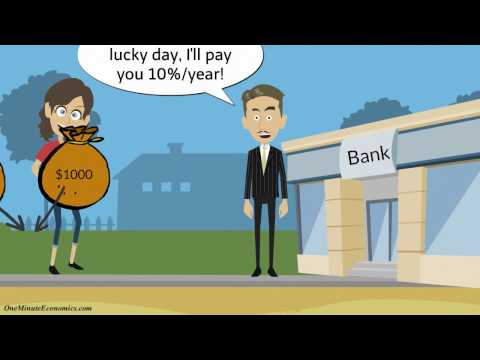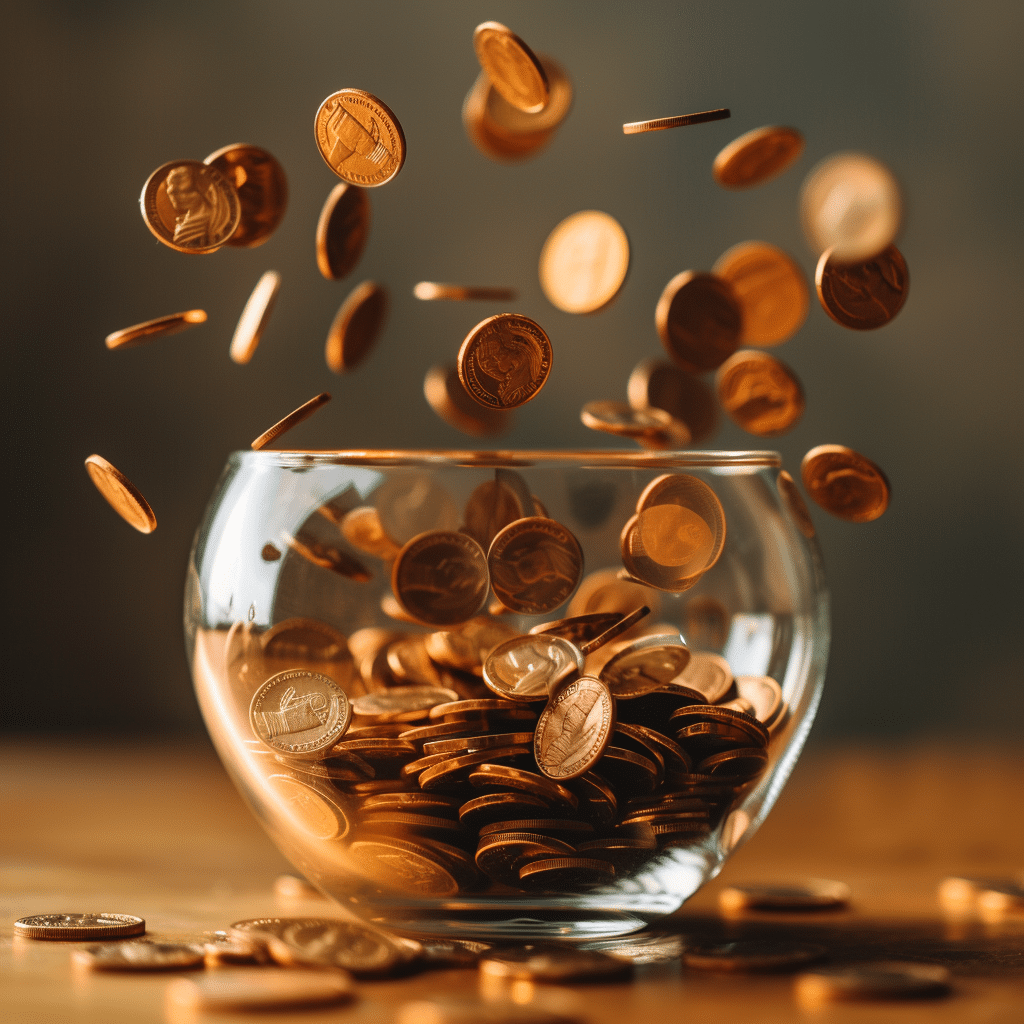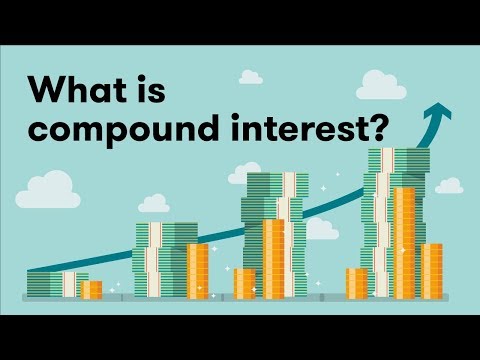When we delve into the realm of growing wealth, one term that often bubbles to the surface, heralded as a magical formula by savvy investors the world over, is compounding. But exactly, what is compounding in wealth growth, and why does it matter? It’s not just a financial buzzword; it’s the cornerstone of investing wisdom that can transform modest savings into staggering fortunes.

Unlocking the Mystery: What is Compounding in Wealth Growth?
For those scratching their heads, wondering what is compounding, let’s break it down. Compounding, folks, is what happens when your investments earn money and then those earnings go on to earn some more. It’s like a financial snowball rolling downhill, getting bigger and more massive with each turn. Imagine planting a single tomato seed and ending up with a whole garden; that’s compounding in action, helping your wealth grow organically – and impressively – over time.

Decoding the Compound Interest Meaning: The First Secret of Amplifying Wealth
The compound interest meaning can be thought of as the bread and butter of the investment world. It’s the interest you earn on the initial principal, plus any accumulated interest from prior periods. If you take a gander back in history, Vanguard’s index funds are a prime example. They’ve ridden the compounding wave to offer investors returns that often left simple interest in the dust. Take a $10,000 investment in Vanguard 500 Index Fund, which historically averaged a 7% annual return. After 30 years, thanks to compound interest, you wouldn’t have just more money; you’d be looking at over $76,000 without lifting a finger!

| **Aspect** | **Explanation** |
|---|---|
| Definition | Compounding refers to the process where an investment earns interest not only on the principal amount but also on the accumulated interest from previous periods. |
| Key Principle | Earning returns on both the original investment and on previously earned returns. |
| Compound Interest | Interest calculated on the initial principal and also on the accumulated interest from prior periods. |
| Basic Example | Original investment: $100 Annual interest rate: 5% Year 1: $105 Year 2: $110.25 (5% of $105) |
| Frequency of Compounding | The frequency with which interest is added to the original investment. Can be annual, semi-annual, quarterly, monthly, daily, or continuously. |
| Importance | Compounding can significantly increase the value of an investment over time, as the reinvestment of earnings leads to exponential growth. |
| Factors Affecting Compounding | The principal amount, interest rate, frequency of compounding, and time horizon of the investment. |
| Illustration of Growth | The effect of compounding is more pronounced over longer periods. For example, $10,000 invested at 5% interest compounded annually will grow to $16,288.95 in 10 years. |
| Simple vs. Compound Interest | Simple interest is calculated only on the principal amount each period, while compound interest is calculated on the principal and all accumulated interest. |
| Implication for Investors | Investors can reach financial goals more quickly with compounding. It is advisable to start investing early to maximize the benefits of compounding. |
| Calculator Use | To calculate compound interest, investors can use a compound interest calculator that requires inputs like the principal amount, interest rate, compounding frequency, and time period. |
Deep Dive Into the Compounding Definition: Secret Two to Understanding Wealth Multiplication
Now let’s wade a little deeper into the compounding definition. It’s everywhere! Just like the way a baker’s dough doubles in size with the right ingredients and time. Compounding isn’t just a financial concept; it’s a universal principle seen in nature’s growth patterns, like in the spirals of shells or the branching of trees. This principle mirrors the financial realm, where your money can grow in a similar pattern, becoming more abundant as time passes.

Mechanism Unveiled: How Does Compound Interest Work in Real Investments?
A question that pops up often is: how does compound interest work? Let’s take a real-world peek. Say you’ve got a high-yield savings account at Ally Bank with an APY (Annual Percentage Yield) of 2%. If you park $5,000 in there, not only do you earn interest on your five grand, but next year, you’ll also earn interest on this year’s interest. It’s a delightful domino effect that keeps your balance blooming. Or look at companies like Coca-Cola. If you reinvest the dividends you receive from owning shares, you buy more shares, which means more dividends in the future – a compounding bonanza!
What is Compounding’s Role in Real Estate Investments?
Jump into the real estate deep end, and you find compounding working its tail off there too. Real estate investment trusts (REITs) are classic examples. They pay out most of their income as dividends, and if you reinvest those dividends, you’re not just compounding; you’re catapulting your returns to new heights. Picture Barbara Corcoran turning a $1,000 loan into a billion-dollar real estate empire through shrewd compounding strategies. That’s the power of smart reinvestment.
The Insider Perspective: What is Compounding Interest in the Eyes of a Financial Planner?
Financial planners are wizards at utilizing what is compounding interest to their clients’ advantage. They’ll often cite the need to start early, allowing the compound interest fairy to wave her wand for longer, turning small sums into king’s ransoms with time. Just like Robert from Fidelity Investments used to say, “The eighth wonder of the world is compound interest.” He advised clients to invest in diverse portfolios, allowing compounding to work across the board. The results are often staggering—just ask his millionaire clients!
Building Compound Wealth Through Business Ventures: The Entrepreneurial Angle
Prominent entrepreneurs live and breathe compounding principles. For example, think about Spanx founder Sara Blakely, who bootstrapped her business and continually reinvested her earnings, leveraging compounding to become a billionaire. Elon Musk does it too. He takes profits from one venture, injects them into another, and watches it skyrocket. It’s compound growth on a business scale, spinning gold out of sheer grit and reinvested profits.
Personal Tales of Compounding Triumph: How Ordinary Individuals Achieve Extraordinary Wealth
Compounding isn’t just a playground for the wealthy; it’s a tool for everyone. Consider Sarah, who started tucking away $100 a month into her Roth IRA at age 25. With a reasonable average annual return, by the time she hit retirement, she had a nest egg fit for a queen. Or Jake, whose 529 plan for his kiddos’ education turned monthly contributions equivalent to the cost of a family board game night into a college fund hefty enough to make student loans a distant nightmare.
Innovative Wrap-Up: The Power of Compounding in Your Hands
Let’s tie it all up with a bow, shall we? The power of compounding is like a secret sauce for your financial burgers—it makes everything better. It’s akin to sitting back and letting a patch of sunflowers grow ever taller with each passing day. Whether you’re stacking dollars in a savings account, reinvesting stock dividends, or using rental income to buy more properties, compounding is the faithful companion on your journey to wealth.
Now’s the time to grab the bull by the horns and ride it all the way to your own financial rodeo. Look for those compound interest opportunities as if they were rare truffles waiting to be discovered. Remember: a penny saved and compounded is much more than a penny earned.
So, my dear reader, step into the ring of wealth growth. Embrace the secrets of compounding revealed here, akin to uncovering the cast of a spectacular play. With these strategies, you might just be the star of your own financial blockbuster. And always keep an eye out for that good ‘ol compounding—making it rain dollars like it’s a downpour of opportunity!
What is Compounding: Unlocking the Secrets to Growing Your Wealth
Ever feel like you’re watching your favorite TV drama, like the suspenseful The watcher cast, and you’re on the edge of your seat, eager to find out what comes next? That’s sort of what tracking your compounding wealth feels like! When you understand what is compounding, you’re peeking into a financial thriller where your money stars as the hero, tirelessly working to multiply itself even while you sleep.
The Magic of Compounding: More Than Just Interest
Imagine you’re playing one of those strategic family board Games where every move you make now can drastically affect your success in the future. That’s compounding in a nutshell. It’s not just about earning interest—it links arms with time, like best buddies, creating an unstoppable force. With every tick of the clock, it’s like your money says,Let me call in a few friends, and voilà!—more money appears.
The Roller Coaster of Compounding: Small Beginnings, Huge Outcomes
Compounding isn’t something you watch from the sidelines. It’s like Carnivor creatures in the wild—it’s relentless and doesn’t slow down for anyone. Starting might seem slow, but just you wait! It’s like when you first use Wegmans Instacart and think,Is this really faster? And then, bam! Groceries appear at your door, and you’ve saved a ton of time. With compounding, you start small, but soon enough, your wealth grows faster than you can say Diferencia between simple and compound interest.
The Math Whiz Kid of Finance: Compounding’s Secret Formula
Okay, here’s where we put on our nerdy glasses and look closely at the compound interest formula interest equation. It’s like the secret sauce recipe every chef guards with their life. Understanding this formula is like having the key to a treasure chest—it unlocks the mystery of how your money can grow exponentially over time. It’s the difference between a flat soda and a fizzy, bubbly delight—the zest that gives your wealth growth its kick!
So, what’s the catch? The catch is, there isn’t one! Just like Whats a compound isn’t a riddle wrapped in an enigma, the art of compounding wealth isn’t a trick or a fancy financial scheme. It’s just your money, earning interest on interest, making friends with time, rolling up its sleeves, and saying,Let’s turn this party up a notch!
Remember, knowing what is compounding is like holding a map where “X” marks the spot of buried treasure. And that treasure, my friends, is your financial future, waiting to be discovered one compound interest calculation at a time.

What is compounding in simple terms?
Oh boy, compounding is like a money-growing superpower, but with dollars instead of capes. Imagine you’ve got a golden goose (that’s your initial investment) and it lays eggs (these are your returns). Now, instead of just collecting those eggs, you let ’em hatch into more geese who’ll lay even more eggs. Before you know it, you’ve got a whole flock! That’s the gist of compounding – reinvesting your earnings to hatch a bigger and bigger nest egg.
What does 5% compounding mean?
Say you’ve got a tidy sum of $100 and it’s tagged with a 5% compounding rate. Picture this: every year, that money pumps out an extra 5% like clockwork. So at the end of Year One, you’ve got $105, and bam! In Year Two, that $105 works hard again, earning another 5%, and now you’re sitting on $110.25. Keep that rolling and you’ll be laughing all the way to the bank.
Being compounded is kinda like being in the loop, but for your money. Your cash isn’t just chilling in a bank account; it’s out there working the night shift, too. The interest it collects generates its own interest, kinda like rabbits breeding – without the messy cleanup.
What does being compounded mean?
Think of compounding in real life like a wicked gardening trick. You plant a small seed (your investment), and as it grows (earns interest), the new offshoots (interest on interest) start sprouting, expanding your financial garden without having to sow more seeds constantly. Over time, you’ve got a lush green money forest!
What is compounding in real life?
Wanna start compounding your hard-earned cash? Here’s the lowdown: open an investment or savings account where your dosh earns interest. Then, keep your mitts off that interest! Let it loop back into the account and work its magic. Voila! You’re compounding!
How do I start compounding money?
Is compounding good or bad? Sheesh, that’s like asking if a warm cookie is good or bad – it’s fantastic if you’re saving, but watch out! It can bite like a burnt crumb when you’re borrowing.
Is compounding good or bad?
Got a grand stashed away? At a 6% interest rate compounded daily, after two years you’ll have a bit more than a grand, my friend. A calculator will cough up the exact figure, but trust me, it’s like giving your money a daily workout, and now it’s flexing bigger figures.
How much is $1000 worth at the end of 2 years if the interest rate of 6% is compounded daily?
Is compounding risky? Well, it ain’t playing with fire, but it’s not all rainbows and butterflies either. The biggest gamble is where you park your bucks. Solid investments make compounding a smooth ride, but shaky ones can turn the dream into a bit of a nightmare.
Is compounding risky?
Patience, my compounding grasshopper. To double a thousand smackers at a continuous 5% compounded rate? Without a calculator handy, we’re looking at just over 14 years. That’s the power of the so-called Rule of 72 – a neat trick to estimate doubling time.
How long does it take $1000 to double if it is invested at 5% compounded continuously?
Want to dodge paying compound interest like you’d dodge a rain puddle? Easy! Pay off your debts on the regular, especially those pesky credit card balances. Keeping your debt dry means compound interest won’t soak your budget.
How do I avoid paying compound interest?
Why’s compounding as powerful as a superhero? ‘Cause it’s like your money hits the gym and beefs up while you binge your favorite TV series. Every time your investment earns returns, those returns start earning too. Before you know it, you’ve got a money muscle monster!
Why is compounding so powerful?
The downsides of compound interest? Well, if you’re borrowing, it’s like a snowball fight uphill, in a blizzard. The longer you dilly-dally with paying off the loan, the bigger the snowball gets until, whammo! You might just get buried.
What are the disadvantages of compound interest?
The best example of compounding is probably retirement savings, no kidding. You start off small, keep adding a little over time, and by the time you’re ready to chill, your piggy bank’s all grown up into a hog that’ll support you while you kick back.
What is the best example of compounding?
Now, the magic of compounding – it’s the financial world’s Harry Potter wand. The longer you let your money marinate in an interest-earning account, the more spectacular the transformation. Just a sprinkle of patience and you’ve got a recipe for a plumper wallet.
What is the magic of compounding?
Lastly, is compounding a good investment? You betcha! If you’ve got the patience of a saint and the savvy of a fox, compounding can turn your beanstalk into a treasure chest in the sky. Just remember, the real magic is time and reinvesting those returns.




